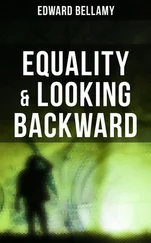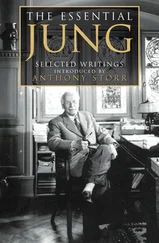"If we are correctly informed," said the doctor, "the concentration of the ownership of the machinery of production and distribution, trade and industry, had already, before you fell asleep, been carried to a point in the United States through trusts and syndicates which excited general alarm."
"Certainly," I replied. "It was then already in the power of a score of men in New York city to stop at will every car-wheel in the United States, and the combined action of a few other groups of capitalists would have sufficed practically to arrest the industries and commerce of the entire country, forbid employment to everybody, and starve the entire population. The self-interest of these capitalists in keeping business going on was the only ground of assurance the rest of the people had for their livelihood from day to day. Indeed, when the capitalists desired to compel the people to vote as they wished, it was their regular custom to threaten to stop the industries of the country and produce a business crisis if the election did not go to suit them."
"Suppose, Julian, an individual or family or group of capitalists, having become sole owners of all the land and machinery of one nation, should wish to go on and acquire the sole ownership of all the land and economic means and machinery of the whole earth, would that have been inconsistent with your law of property?"
"Not at all. If one individual, as you suggest, through the effect of cunning and skill combined with inheritances, should obtain a legal title to the whole globe, it would be his to do what he pleased with as absolutely as if it were a garden patch, according to our law of property. Nor is your supposition about one person or family becoming owner of the whole earth a wholly fanciful one. There was, when I fell asleep, one family of European bankers whose world-wide power and resources were so vast and increasing at such a prodigious and accelerating rate that they had already an influence over the destinies of nations wider than perhaps any monarch ever exercised."
"And if I understand your system, if they had gone on and attained the ownership of the globe to the lowest inch of standing room at low tide, it would have been the legal right of that family or single individual, in the name of the sacred right of property, to give the people of the human race legal notice to move off the earth, and in case of their failure to comply with the requirement of the notice, to call upon them in the name of the law to form themselves into sheriffs' _posses_ and evict themselves from the earth's surface?"
"Unquestionably."
"O father," exclaimed Edith, "you and Julian are trying to make fun of us. You must think we will believe anything if you only keep straight faces. But you are going too far."
"I do not wonder you think so," said the doctor. "But you can easily satisfy yourself from the books that we have in no way exaggerated the possibilities of the old system of property. What was called under that system the right of property meant the unlimited right of anybody who was clever enough to deprive everybody else of any property whatever."
"It would seem, then," said Edith, "that the dream of world conquest by an individual, if ever realized, was more likely under the old _regime _ to be realized by economic than by military means."
"Very true," said the doctor. "Alexander and Napoleon mistook their trade; they should have been bankers, not soldiers. But, indeed, the time was not in their day ripe for a world-wide money dynasty, such as we have been speaking of. Kings had a rude way of interfering with the so-called rights of property when they conflicted with royal prestige or produced dangerous popular discontent. Tyrants themselves, they did not willingly brook rival tyrants in their dominions. It was not till the kings had been shorn of power and the interregnum of sham democracy had set in, leaving no virile force in the state or the world to resist the money power, that the opportunity for a world-wide plutocratic despotism arrived. Then, in the latter part of the nineteenth century, when international trade and financial relations had broken down national barriers and the world had become one field of economic enterprise, did the idea of a universally dominant and centralized money power become not only possible, but, as Julian has said, had already so far materialized itself as to cast its shadow before. If the Revolution had not come when it did, we can not doubt that something like this universal plutocratic dynasty or some highly centered oligarchy, based upon the complete monopoly of all property by a small body, would long before this time have become the government of the world. But of course the Revolution must have come when it did, so we need not talk of what would have happened if it had not come."
Конец ознакомительного фрагмента.
Текст предоставлен ООО «ЛитРес».
Прочитайте эту книгу целиком, купив полную легальную версию на ЛитРес.
Безопасно оплатить книгу можно банковской картой Visa, MasterCard, Maestro, со счета мобильного телефона, с платежного терминала, в салоне МТС или Связной, через PayPal, WebMoney, Яндекс.Деньги, QIWI Кошелек, бонусными картами или другим удобным Вам способом.












